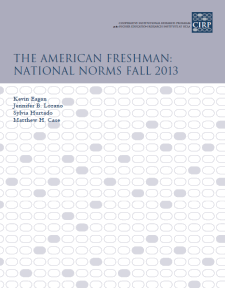Best Advice for the Wait List
Posted on Mon, 03/17/2014 - 15:10
As decision letters roll in, some students may find themselves waitlisted. If placed on a waitlist, you haven’t been accepted and you haven’t been denied. You’re in limbo, and that can be stressful. Students rarely anticipate they will be placed on a waitlist at one of the colleges where they have applied, but they very well may be and it's important to understand what your next steps should be.
So this month we asked our experts: "What is your best advice for students who are waitlisted?" Today and tomorrow, we'll be bringing you the excellent insights and guidance from these high school college counselors who know best.
John E. (Jake) Talmage
Director of College Counseling
St. Paul’s School
Brooklandville, Maryland
A couple of years ago, one of my senior boys was waitlisted by his first choice college. He was devastated. As the month of April progressed, he and I were in touch with this college and learned that the college had moved to the waitlist twice in the previous three years. In both cases, the college had needed men (like many liberal arts schools, the college is more popular with girls), so we held out hope. In early May, we heard rumors that the college had started to admit some students off the waitlist. So, we contacted the admission office. During this call, an admission officer told us, “Surprisingly, we are going for girls.”
For high school athletes, what are the odds?
Posted on Fri, 03/14/2014 - 14:53
What is the probability of a student competing in a sport beyond high school? The NCAA crunched the data for student athletes in six different sports to illustrate the percentage of high school students who go on to play in NCAA athletics and beyond. You can see the table here. And the odds are revealing.
If you're trying to evaluate how your skills and talent fit within the programs a college offers, MIT Dean of Admission Stuart Schmill has some great advice from College Admission: "Listen to what the coaches are telling you objectively, without projecting your own wishes onto what a coach might say." And remember there are many ways for students to participate in athletics at the college level from NCAA Division-I, II and III, to NAIA, and club or intramural sports.
Should you consider a women's college?
Posted on Fri, 03/14/2014 - 12:25Studies have found that in classrooms of women students participate more actively and report higher levels of learning, higher order thinking, and more academic challenge throughout their four years than do women in coed settings. Political consultant and Bryn Mawr graduate Carrie Wofford has a great opinion piece in US News on women's colleges and the women who graduate from their programs. But there's even more information here that could be important to consider in your college search. For example, students at women's colleges report more interaction with faculty. And if tradition and community bonds are important to you, a women's college may be the place you're looking for. Read the whole piece here.
Hat tip: Ellen Michelson, parent of a Bryn Mawr, Class of 2009, graduate.
Photo of Hillary Clinton at Wellesley from LIFE magazine archives
Do Your Laundry or You'll Die Alone...
Posted on Wed, 03/12/2014 - 16:18College Admission went to a book party last night thrown by Grown and Flown's Lisa Endlich Heffernan and Mary Dell Harrington in honor of Becky Blades, writer, artist and author of Do Your Laundry or You'll Die Alone: Advice Your Mom Would Give You if She Thought You Were Listening. Blades penned 269 pieces of advice for her two daughters, Taylor Kay and Tess -- primarily as a way of working through her separation anxiety as the eldest headed off to college. (Excellent idea, by the way.)
Her words of wisdom range from the practical: "Cooked food lasts 3 to 4 days in the refrigerator. That's all. After that, you will have to throw it out. Your Mother will not be doing this anymore."
To the felicitous: "Own a tutu and a boa. Because you just never know."
And the things you cannot say too many times: "Don't text while you're driving."
On to the horrifying but you have to say it: "Keep your knees together when you're sitting on stage."
Ch-Ch-Ch-Ch-Changes... for the SAT
Posted on Wed, 03/12/2014 - 15:35
Jane Kulow, aka Dr. StrangeCollege, has a great roundup on her blog covering the upcoming changes to the SAT, including reactions and analysis from the likes of Chronicle of Higher Education's Eric Hoover (the best higher education reporter out there) and DePaul University's Vice President of Enrollment Jon Boeckenstedt (a straight shooter and data master). Head over here to find out more about the change that's gonna come.
Seniors: Questions to Ask on a Return College Visit
Posted on Wed, 03/12/2014 - 08:42If you are making a return visit to a college or visiting for the first time after being admitted, make sure you get off the beaten path -- hang out at the student union, visit the study spaces in the library, or browse in the bookstore, grab lunch at a campus cafeteria, arrange to sit in on a class or meet with a professor. And ask questions of everyone. You may be surprised at how willing students are to speak candidly with you. Here are some questions to ask:
Why did you decide to go to school here?
What's a typical student like?
Are professors accessible? How do you spend time with faculty outside the classroom?
Juniors: Questions to Ask when Visiting Campus
Posted on Tue, 03/11/2014 - 09:09
In the official group information sessions colleges offer, an admission officer will usually provide an overview of the college -- the school’s history, academic programs, undergraduate life, athletics, the application process, and financial aid-- followed by a question and answer session for students and parents. (Quick tip: let students lead with their questions first!)
During this Q&A, the admission officer will be able to provide you with answers about most aspects of daily life on campus— academics, housing, any special programs such as study- abroad opportunities. But don’t be afraid to have them address broader queries about the who, what, and why of the campus -- and the application process. Here are some questions you may want to ask:
• What impresses you the most in a student’s application?
• What are you looking for when you read students’ essays?
• What are some of the things you hate to see in an application?
• Is demonstrated interest a factor in your admission decision?
• Are admission decisions need- blind?
• What kind of student does well here? What kind of student doesn’t do well here?
• Did you attend this college? What has changed since you’ve been here?
• What changes do you see taking place on campus in the next five years?
Waiting, waiting, waiting...
Posted on Mon, 03/10/2014 - 21:43
Mary Dell Harrington of Grown and Flown joins us today to talk about the ups and downs students -- and parents -- weather as the wait for regular decisions winds down. It's always nice to have a fellow traveler with whom to share the experience. Read on for a friend's perspective...
Thick or Thin Envelope?
Welcome to the end of the waiting period, the last few weeks of March where kids who applied to colleges via regular decision still remain in the dark about whether they will receive the “thick or thin envelopes.” Our youngest child is one of those seniors and she (and I) know that the April 1 notification date is no longer some distant date in the future. It is practically now.
I have been down this road before with our son and his friends when they graduated from high school five years ago. I work as a PTA volunteer in the snack bar where we sell bagels, Snapples, and a host of comfort foods to hungry kids. From mid-December on, seniors accepted via early decision bounced up to the counter wearing new logo sweatshirts and broad smiles, expressing relief that it was all over. They could now finally begin to imagine themselves the following fall in Syracuse or Nashville or wherever. No more wondering, no more work to do.
You should never go to the best institution you get into...
Posted on Sat, 03/08/2014 - 12:34
Did you know? You should never attend the best college you're admitted to? Some fascinating statistics and counter-intuitive insights from the master of such Malcolm Gladwell. Thank you to DePaul University's Associate Vice President for Enrollment Management Jon Boeckenstedt for forwarding this amazing short talk by Gladwell at Google's Zeitgeist Americas 2013. As Boeckenstedt points out on his Admissions Weblog, Gladwell covers a number of issues parents and admission officers always want to hear more about including whether it's better to be a small fish in a big pond and why firms that only hire from the "best schools" are probably making a mistake. It's worth the time to watch here!
The American Freshman: More Price-Sensitive, More Liberal and Headed for Business and Medical School
Posted on Thu, 03/06/2014 - 09:51
More than three-quarters of this year's freshmen were admitted to their first-choice school but an all-time low of 56.9 percent chose to attend, with price and financial determining the college where they eventually enrolled. The annual survey, The American Freshman: National Norms, which canvassed 165,743 first-time, full-time students entering 234 four-year American colleges and universities, was released yesterday. It found last year's freshmen to be more price-sensitive, increasingly liberal, not very likely to take an online course, and largely focused on careers in business and medicine. You can see the entire report here. And extended reporting from the Chronicle of Higher Education and Inside Higher Ed.







